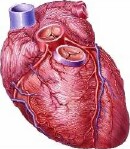
MONDAY, Nov. 22 (HealthDay News) — Deaths from congenital heart defects in the United States fell 24 percent from 1999 to 2006, continuing a decades-long decline, a new study finds.
Congenital heart defects are structural abnormalities of the heart at birth. These include a variety of conditions that range from mild to severe and can increase the risk for problems such as irregular heartbeats, congestive heart failure and high blood pressure in arteries that supply blood to the lungs.
The new study was led by Suzanne Gilboa, an epidemiologist at the National Center on Birth Defects and Developmental Disabilities, part of the Centers for Disease Control and Prevention (CDC). The findings were published Nov. 22 in the journal Circulation.
Gilboa and her colleagues found that in 2006 a congenital heart defect was the underlying cause of 27,960 deaths, a rate of 1.2 deaths per 100,000 people. Infants accounted for 48 percent of the deaths.
Among the study’s other findings:
- Blacks had the highest rate of death from congenital heart defects.
- There was a 15 percent decline in the death rate for all racial/ethnic groups other than whites, who had a decline of more than 25 percent.
- Males had a higher death rate than females, except in people over age 65.
- The most common fatal congenital heart defect (about 10 percent of cases) was hypoplastic left heart syndrome, an underdeveloped left side of the heart.
Gilboa’s team said that it’s not clear why the drop in deaths occurred, but advances in technology, leading to better diagnosis and treatment, probably played a role.
The latest findings seem to continue a trend: research published in 2001 found that deaths from congenital heart defects decreased 39 percent between 1979 and 1997.
More information
The March of Dimes has more about congenital heart defects.

